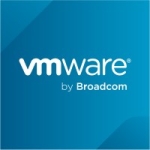What is our primary use case?
We use Redshift as a central data warehouse. This data can be consumed directly by AWS services or different applications where we can provision the data via Athena. If we want to create more business intelligence tools and analysis, we write some SageMaker notebooks for deploying machine learning models based on the data.
We have a wide variety of use cases, but we generally use it to have one place where we can store data. We also connect enterprise legacy systems such as SAP systems. I'm mostly connecting shop floor assets and the industrial machinery to store relevant data in one place and make it available. Via Athena, combined data can then be retrieved with easy SQL queries.
Usually, we use the newest version of the solution. If there are new updates available, we try to take them directly.
Our customers usually have a hybrid cloud or full cloud architecture with minimum on-premises data centers.
We have five to ten customer projects per year in our department in which we set up data lake houses using Redshift. Those companies have between 3,000 and 15,000 people. Not everybody has to use Redshift. Depending on the project and the size of the consulted company, there are 2,000 to 3,000 end users who need access to the stored data.
How has it helped my organization?
We are a consultancy company of 1,500 people. Those who use a sophisticated data warehouse architecture tailored to the business requirements, profit a lot since this is the foundation of business intelligence which makes a company more resilient and adaptable to change. We try to select the correct service for our customers, and when using AWS, we usually do data warehousing with Redshift.
What is most valuable?
The main benefit is that our portal for end users is running in AWS, so we can easily connect it to other AWS services. The most important part for us is the connectivity inside AWS.
What needs improvement?
Pricing sometimes depends on the setup (key, etc.) which makes it hard for somebody new to AWS. Detailed research has to be conducted to end up with a competitive solution in terms of pricing and performance.
For how long have I used the solution?
I have used Redshift for a year and a half.
What do I think about the stability of the solution?
I would rate the stability as nine out of ten since AWS provides a relatively resilient solution in general due to load balancing and auto scaling capabilities.
What do I think about the scalability of the solution?
I would rate the scalability as ten out of ten.
How are customer service and support?
We are a certified partner of AWS, so we have a different level of customer service, but usually, the customer service is fast and efficient even without a direct contact person.
How would you rate customer service and support?
Which solution did I use previously and why did I switch?
My company has more than 20 years of experience with SAP in general and the Data Warehouse Cloud is also used for customer projects.
How was the initial setup?
I'm familiar with AWS in general, so the setup is not difficult. For people who struggle with IAM or role-based management, the setup can be challenging.
In cases where there is deep knowledge of creating a microservices architecture using AWS, a project can be executed quite fast. The only reason for using AWS is the aim for AWS Redshift as a data warehouse, the setup is not as easy.
The amount of time it takes to deploy depends on the project. We try to do our projects incrementally, so we start with one department and deploy all of the relevant data from that. It takes about two to three months to draft a minimum viable product, connect a couple of machines, and use Redshift to work with data consumed by analysis tools or reporting capabilities. It is possible to set up a data warehouse in one or two weeks.
There are different types of projects, and if we do it within a waterfall approach, it can take a long time.
When creating a data warehouse using Redshift, we first analyze the current situation and then sketch the architecture in AWS with the required ETL process to ingest and consume data, including the right processing to aggregate and enrich data according to business requirements. This is where all the customization comes in.
For deployment and maintenance for only one customer, I would say that three to six experienced people can handle the job. For maintenance work, in my opinion, there is only one person required for two or three hours a week maximum.
I would rate the setup as eight out of ten.
What's my experience with pricing, setup cost, and licensing?
The cost will depend on how you set up your warehouse and what kind of data you store. I would rate the pricing as six out of ten.
What other advice do I have?
I would rate this solution as nine out of ten.
My advice is to use a consultant to set it up correctly and to get familiar with data warehousing in general. It's pretty straightforward once you're using the data management console. Anyone could use Google to set it up, but to do it correctly and sketch the perfect architecture, an external consultancy company should handle it because the usual IT departments aren't that experienced.
I think Redshift is worth the money, and there's always some return. Most companies don't have a full solution for business intelligence. AWS provides a pretty good service architecture to implement this. Anyone who uses Redshift or a data warehouse in general will have a return on investment.
Which deployment model are you using for this solution?
Hybrid Cloud
If public cloud, private cloud, or hybrid cloud, which cloud provider do you use?
Amazon Web Services (AWS)
Disclosure: My company has a business relationship with this vendor other than being a customer. partner




















